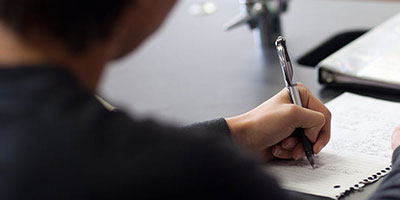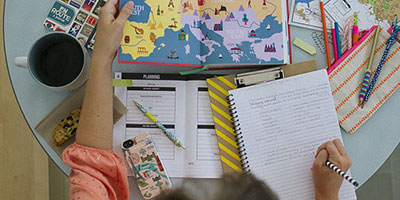Literature
Bibliography
Ashby, C. (2006). The benefits of reflective practice. Practice Nurse, 32(9), 35-37. (PC Community Access)
Bain, J.D., Ballantyne, R., Mills, C. & Lester, N.C. (2002). Reflecting on practice: Student teachers’ perspectives, Post Pressed: Flaxton, Qld.
Bassot, B. (2013). The Reflective Journal. Basingstoke: Palgrave.
BlueSteps. (2011). CAR interview technique. [accessed on 08/25/2019].
Bolton, G. (2010) Reflective Practice: writing & professional development. London: Sage Publications.
Bonner Foundation. (2013). Service based reflection. Retrieved from the Bonner Wiki website: http://bonner.pbworks.com/w/file/fetch/108930121/BonCur2013.ServiceBasedReflection1.pdf. [accessed 10/10/2019].
Borton, T. (1970). Reach Touch and Teach: Student Concerns and Process Education. McGraw-Hill, New York.
Boud, D., Keogh R. & Walker, D. (1985). Reflection: turning experience into learning. London: Kogan Page.
Boud, D., & Walker, D. (1998). Promoting reflection in professional courses: the challenge of context. Studies in Higher Education, 23(2), 191-206. (PC Community Access)
Boud, F. & Molloy E. (2013). Rethinking models of feedback for learning: the challenge of design. Assessment & Evaluation in Higher Education, 38(6), 698-712. (PC Community Access)
Brookfield, S. (1995). Becoming a critically reflective teacher. Wiley.
Carrington, S. & Selva, G. (2010). Critical social theory and transformative learning: evidence in pre-service teachers’ service reflection logs. Higher Education Research & Development, 29(1), 45-57.
Carson, L. & Fisher, K. (2006). Raising the bar on criticality: students’ critical reflection in an internship program. Journal of Management Education, 30(5), 700-723. (PC Community Access)
Chng, S.I. (2018). Incorporating reflection into computing classes: models and challenges, Reflective Practice, 19:3, 358-375. (PC Community Access)
Cunningham, N., & Moore, K. (2014). Beyond the ‘swampy lowlands’: the welfare benefits of reflective practice through learning. Journal of Poverty and Social Justice, 22(3), 271-75.
Dawson, P. (2017). Assessment rubrics: towards clearer and more replicable design, research and practice. Assessment & Evaluation in Higher Education, 42(3), 347-360. (PC Community Access)
Dewey, J. (1933). How we think: a restatement of the relation of reflective thinking to the educative process. New York: D.C. Heath and Company.
Driscoll J. (1994). Reflective practice for practise. Senior Nurse, 13, 47 -50.
Duijnhouwer, H., Prins, F.J., & Stokking K.M. (2012). Feedback providing improvement strategies and reflection on feedback use: effects on students’ writing motivation, process, and performance. Learning and Instruction, 22, 171-184.
Duncan, N. (2007). ‘Feed‐forward’: improving students’ use of tutors’ comments. Assessment & Evaluation in Higher Education, 32(3), 271-283. (PC Community Access)
England, K.V.L. (1994). Getting personal: reflexivity, positionality and feminist research. The Professional Geographer, 46(1), 80-89. (PC Community Access)
Feest, A. & Iwugo, K. (2006). Making reflection count. Engineering Education, 1(1), 25-31.
Ferreira, J.A., Keliher, V. & Blomfield, J. (2013). Becoming a reflective environmental educator: students’ insights on the benefits of reflective practice. Reflective Practice, 14(3), 368-380. (PC Community Access)
Ferreira, J.F., Basseches, M., & Vasco, A.B. (2017). Guidelines for reflective practice in psychotherapy: a reflection on the benefits of combining moment-by-moment and phase-by-phase mapping in clinical decision making. Journal of Psychotherapy Integration, 27(1), 35-46. (PC Community Access)
Fielden K. (2010) Evaluating Critical Reflection for Postgraduate Students in Computing, The Journal of Issues in Informing Science and Information Technology, Evaluating Critical Reflection, 461-470.
Freire, P. (1970). Pedagogy of the oppressed. New York: Herder & Herder.
Freire, P. (1973). Education for critical consciousness. New York: Herder & Herder.
Gardner, F. (2009) Affirming values: using critical reflection to explore meaning and professional practice. Reflective Practice, 10(2), 179-190. (PC Community Access)
Gibbs G (1988). Learning by Doing: A guide to teaching and learning methods. Further Education Unit. Oxford Polytechnic: Oxford.
Greenaway, R. The active reviewing cycle. [accessed on 08/06/2019].
Greenaway, R., Vaida, B, & Iepure, C. (2015). Active reviewing: A practical guide for trainers and facilitators. Charleston, SC: CreateSpace Independent Publishing Platform.
Grossman, R. (2009). Structures for facilitating student reflection. College Teaching, 57 (1), 15-22. (PC Community Access)
Hampton, Mark. (n.d.). Reflection writing: a basic introduction. Retrieved from University of Portsmouth, Department for Curriculum and Quality Enhancement website: http://www2.port.ac.uk/media/contacts-and-departments/student-support-services/ask/downloads/Reflective-writing—a-basic-introduction.pdf. [accessed on 101/10/2019].
Harlen, W. & James, M. (1997). Assessment and learning: differences and relationships between formative and summative assessment. Assessment in Education: Principles, Policy & Practice, 4(3), 365-379.
Hibbert P. (2013). Approaching reflexivity through reflection: issues for critical management education. Journal of Management Education, 37(6), 803-827. (PC Community Access)
Hughes, I. (2001). But isn’t this what you’re paid for? The pros and cons of peer and self assessment. Planet, 3(1), 20-23.
Hughes Miller, K., Jones V.F., Patel, P., & Rowland, M. (2012). Working toward a fair assessment of students’ reflective writing, faculty focus. Higher Ed Teaching Strategies, Magna Publications.
Jones, S. (n.d.). Using reflection for assessment. Office of Service Learning, IUPUI. Available online at https://vp.studentlife.uiowa.edu/assets/Using-Reflection-for-Assessment.pdf [accessed on 08/04/2019].
Jordi, R. (2011). Reframing the concept of reflection: consciousness, experiential learning, and reflective learning practices, Adult Education Quarterly, 61(2), 181–197. (PC Community Access)
Kember, D., Leung, D.Y.P., Jones, A.J., Loke, A. Y., McKay, J., Sinclair, K., Tse, H., Webb, C., Wong, F. K. Y., Wong, M. & Yeung, E. (2000). Development of a questionnaire to measure the level of reflective thinking, Assessment & Evaluation in Higher Education, 25:4, 381-395. (PC Community Access)
Kennison, M.M. & Misselwitz, S. (2002). Evaluating reflective writing for appropriateness, fairness, and consistency. Nursing Education Perspectives, 23(5), 238-242.
Knowles, Z., Tyler, G., Gilbourne, D., & Eubank, M. (2006). Reflecting on reflection: exploring the practice of sports coaching graduates. Reflective Practice, 7(2), 163-179. (PC Community Access)
Kohn, A. (2006). The trouble with rubrics. English Journal, 95(4).
Kolb, D.A. (1984). Experiential learning: Experience as the source of learning and development. Englewood Cliffs, NJ: Prentice-Hall.
Kori, K., Mäeots, M. & Pedaste, M. (2014). Guided reflection to support quality of reflection an inquiry in Web-based learning. Procidia – Social and Behavioral Sciences 112, 242-251.
Leijen, A., Valtna, K., Leijen, D.A.J. & Pedaste, M. (2012). How to determine the quality of students’ reflections?, Studies in Higher Education, 37:2, 203-217. (PC Community Access)
Lew, M.D.N. & Schmidt, H.G. (2011). Self-reflection and academic performance: is there a relationship? Advances in Health and Science Education, 16, 529-545.
Lotter, C.R. & Miller, C. (2017). Improving inquiry teaching through reflection on practice, Research in Science Education, 47:4, 913-942. (PC Community Access)
Loughran, J.J. (1996). Developing reflective practice: learning about teaching and learning through modelling. London: The Falmer Press.
Loughran, J.J. (2002). Effective reflective practice: in search of meaning in learning about teaching. Journal of Teacher Education, 53(1), 33-43. (PC Community Access)
Mac Suibhne, S. (2009). ‘Wrestle to be the man philosophy wished to make you’: Marcus Aurelius, reflective practitioner, Reflective Practice, 10:4, 429-436. (PC Community Access)
Malthouse, R., Watts, M., & Roffey-Barentsen, J. (2015). Reflective questions, self-questioning and managing professionally situated practice. Research in Education, 94, 71-87. (PC Community Access)
Marton, F. and Saljo R., (1976). On qualitative differences in learning: outcome and process. British Journal of Educational Psychology (46), 4-11.
McCrindle, A. R. & Christensen, C. A. (1995). The impact of learning journals on metacognitive and cognitive processes and learning performance. Learning and Instruction, 5, 167–185.
Moon, J.A. (2004). A handbook of reflective and experiential learning: theory and practice. London: Routledge Falmer.
Moon, J.A (2006). Learning Journals: A handbook for reflective practice and professional development. London: Routledge.
Moon J. (2007). Getting the measure of reflection: considering matters of definition and depth. Journal of Radiotherapy in Practice, 6, 191-200. (PC Community Access)
Orland-Barak, L. (2005). Portfolios as evidence of reflective practice: what remains ‘untold’. Educational Research, 47(1), 25-44.
Paget, T (2001). Reflective practice and clinical outcomes: practitioners’ views on how reflective practice has influenced their clinical practice. Journal of Clinical Nursing, 10, 204-214. (PC Community Access)
Prince, M. (2004). Does active learning work? A review of the research. Journal of Engineering Education, 93 (3), 223-231. (PC Community Access)
Quinn, F.M. (2000) Reflection and reflective practice. In C.Davies, L.Finlay and A. Bullman (eds.) Changing practice in health and social care. London: Sage.
Quinton, S., & Smallbone, T. (2010). Feeding forward: using feedback to promote student reflection and learning – a teaching model. Innovations in Education and Teaching International, 47(1), 125-135. (PC Community Access)
Reddy Y.M. & Andrade, H. (2010). A review of rubric use in higher education. Assessment & Evaluation in Higher Education, 35(4), 435-448. (PC Community Access)
Regier, N. (2012). 60 formative assessment strategies. Focus On Student Learning – Instructional Strategies Series, Regier Educational Resources.
Reynolds, M. & Vince, R. (2004). Organizing reflection. England: Ashgate Publishing.
Roberts, C.-M. & Faull, A.L. (2013). Building a successful Olympic team selection protocol in women’s handball: a case study examining the benefits of employing reflective practice. Reflective Practice, 14(5), 648-659. (PC Community Access)
Ross, J. (2011). Traces of self: online reflective practices and performances in higher education. Teaching in Higher Education, 16(1), 113-126. (PC Community Access)
Ross, J. (2014). Performing the reflective self: audience awareness in high-stakes reflection. Studies in Higher Education, 39(2), 219-232. (PC Community Access)
Ryan, M. (2011). Improving reflective writing in higher education: a social semiotic perspective. Teaching in Higher Education, 16(1), 99-111. (PC Community Access)
Sargeant, J.M., Mann, K.V., Van der Vleuten, C.P., & Metsemakers, J.F. (2009). Reflection: a link between receiving and using assessment feedback. Advancement in Health Science Education, 14, 399-400.
Schön, D. (1983). The reflective practitioner: how professionals think in action. New York: Basic Books.
Shum S.B., Sándor Á., Goldsmith R., Bass R. and McWilliams M. (2017). Towards reflective writing analytics: Rationale, methodology, and preliminary results. Journal of Learning Analytics, 4(1), 58–84.
Simpson, Amber. (2017). Example reflective writing assignments. Retrieved from Auburn University, Office of University Writing website: http://wp.auburn.edu/writing/wp-content/uploads/Example-Reflective-Writing-Assignments-with-notes.pdf. [accessed on 10/10/2019].
Slepcevic-Zach, P. & Stock, M. (2018). ePortfolio as a tool for reflection and self-reflection, Reflective Practice, 19:3, 291-307. (PC Community Access)
Thompson, N. & Pascal, J. (2012). Developing critically reflective practice, Reflective Practice, 13:2, 311-325. (PC Community Access)
Thompson, S. & Thompson, N. (2008). The critically reflective practitioner. New York: Palgrave Macmillan.
Tsingos-Lucas, C., Bosnic-Anticevich, S., Schneider, C.R., & Smith, L. (2017). Using reflective writing as a predictor of academic success in different assessment formats. American Journal of Pharmaceutical Education, 81(1), article 8. (PC Community Access)
University of Arizona. (n.d.). Office of student engagement reflection tool kit. Retrieved from the Office of Student Engagement website: http://ose.arizona.edu/sites/ose.arizona.edu/files/Reflection%20Tool%20Kit.pdf. [accessed on 10/10/2019].
University of Edinburgh. (2018). The CARL framework of reflection. [accessed on 08/25/2019].
Wagner, K. (2006). Benefits of reflective practice. Leadership, v36 n2 p30-32. (PC Community Access)
Wong, A.C.K. (2016). Considering reflection from the student perspective in higher education. SAGE Open. [accessed on 08/06/2019].
Dr. Jennifer Van Reet
Director of the Center for Engaged Learning
Professor of Psychology
Library 211
401.865.1824
jvanreet@providence.edu
Dr. Darra Mulderry
Associate Director of the Center for Engaged Learning
Director, National and International Fellowships
Library 212
401.865.1745
Amy Goggin
Assistant Director of the Center for Engaged Learning
Library 212
401.865.1834
agoggin@providence.edu









